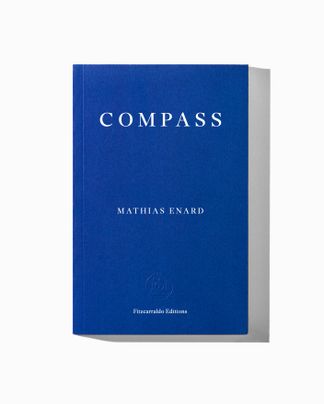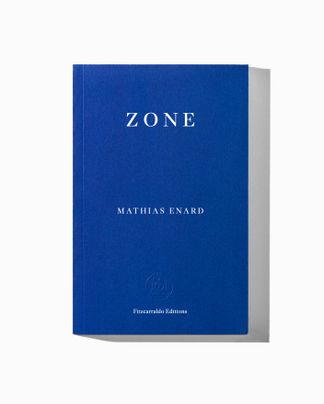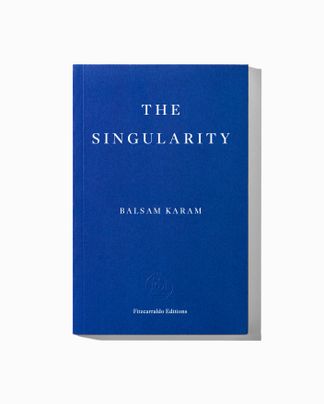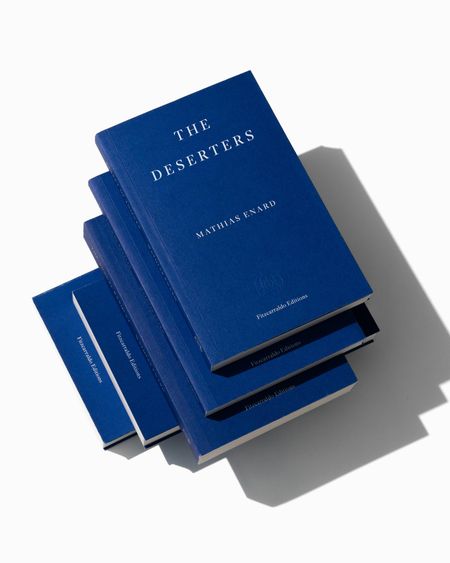In Tangier, young Lakhdar finds himself homeless after being caught in flagrante with his cousin Meryem. As the political and religious tensions in the Mediterranean flare up with the Arab Spring and the global financial crisis, Lakhdar and his friend Bassam entertain dreams of emigration, fuelled by a desire for freedom and a better life. Part political thriller, part road-movie, part romance, the latest novel by Mathias Enard takes us from the violence of Tangier’s streets to Barcelona’s louche Raval quarter. Street of Thieves is an intense coming-of-age story that delves deep into the brutal realities of the immigrant experience.
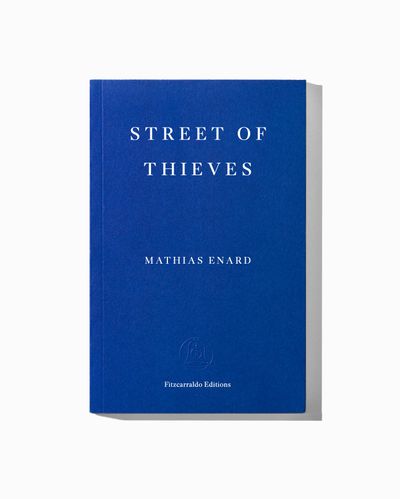
Street of Thieves
Translated by Charlotte Mandell
Published 31 August 2015, French paperback with flaps, 296 pages
Street of Thieves
Translated by Charlotte Mandell
I. STRAITS
Men are dogs, they rub against each other in misery, they roll around in filth and can’t get out of it, lick their fur and their genitals all day long, lying in the dust, ready to do anything for the scrap of meat or the rotten bone they want someone to throw them, and I’m just like them, I’m a human being, hence a depraved piece of garbage that’s a slave to its instincts, a dog, a dog that bites when it’s afraid and begs for caresses. I can see my childhood clearly, my puppy dog’s life in Tangier; my young mutt’s strayings, my groans of a beaten mongrel; I understand my frenzy around women, which I took for love, and above all I understand the absence of a master, which makes us all roam around looking for him in the dark, sniffing each other, lost, aimless. In Tangier I would walk five kilometres twice a day to go look at the sea, the bay and the Strait, now I still walk a lot, I read too, more every time, a pleasant way to trick boredom, death, to trick thought itself by distracting it, by distancing it from the truth, the only truth, which is: we are all caged animals who live for pleasure, in obscurity. I have never gone back to Tangier, but I’ve met guys who dreamed of going there, as tourists, to rent a pretty villa with a view of the sea, drink tea at the Café Hafa, smoke kif and fuck natives, male natives for the most part but not exclusively, there are some who want to screw princesses from the Arabian Nights, believe me, I’ve been asked so many times to arrange a little stay for them in Tangier, with kif and locals, to relax, and if they had known that the only arse I ogled before I was 18 was my cousin Meryem’s they’d have fallen down laughing or wouldn’t have believed me; they so associate Tangier with sensuality, with desire, with a permissiveness that it never had for us, but which is offered to the tourist in return for hard cash in the purse of misery. In our neighbourhood, nobody ever came, not a single tourist. The building I grew up in was neither rich nor poor, my family likewise, my old man was pious, what they call a good man, a man of honour who mistreated neither his wife nor his children – aside from a few kicks in the backside now and then, which never harmed anyone. He was a man of a single book, but a good one, the Koran: that’s all he needed to know what he had to do in this life and what awaited him in the next, pray five times a day, fast, give alms, his only dream was to go on pilgrimage to Mecca, which they call the Haj, Haj Mohsen, that was his sole ambition, it didn’t matter if he worked hard to transform his grocery shop into a supermarket, it didn’t matter if he earned millions of dirhams, he had the Book-prayer-pilgrimage period; my mother revered him and combined an almost filial obedience with domestic servitude: I grew up like that, with suras, morality, stories about the Prophet and the glorious times of the Arabs, I went to a totally average school where I learned a little French and Spanish and every day I would go down to the harbour with my buddy Bassam, to the lower part of the Medina and to the Grand Zoco to check out the tourists, as soon as we sprouted hair on our balls that became our main activity, eyeballing foreign women, especially in summer when they wear shorts and miniskirts. In the summer there wasn’t much to do, in any case, aside from following girls, going to the beach, and smoking joints when someone handed us a little kif. I would read old French detective novels by the dozen, which I bought used for a few coins at a bookshop, detective novels because there was sex, often, blondes, cars, whisky and cops, all things that we lacked except in dreams, stuck as we were between prayers, the Koran and God, who was a little like a second father, minus the kicks in the rear.
(…)
Read an excerpt in Granta, here.
‘[Street of Thieves] confirms Enard as the most brazenly lapel-grabbing French writer since Michel Houellebecq.’
— Leo Robson, New Statesman
‘This is what the great contemporary French novel should be. Enard looks at the world as it is: poisoned by religion, poisoned by politics, choking on materialism and dying of globalization. His prose bites, and his characters retain our sympathy however extreme their actions. Enard fuses the traditions of Céline and Camus, but he is his own man.’
— Patrick McGuinness, author of The Last Hundred Days
‘Though his journeys are limited to Morocco, Tunisia and Spain, [Lakhdar’s journeys] provide a glimpse into the tremors of the Arab spring, the threat of Islamic fundamentalism, and the indignados movement in Spain…. Enard is an ambitious writer and his prose, in Charlotte Mandell’s translation, has moments of devastating clarity.’
— Laila Lailami, Guardian
‘A remarkable and important novel. I can’t think of any better contemporary writers than Enard.’
— Thom Cuell, Bookmunch
‘Street of Thieves is a feat of the imagination propelled by deep cultural familiarity and experience, an extraordinary animation of another person … I’ll read everything Enard writes from now on.’
— Lee Klein, 3:AM Magazine
‘Street of Thieves represents the kind of fiction one hopes will emerge, from Enard or others, after the tumult once known as the Arab Spring has receded a little further into the past.’
— Robert F. Worth, New York Times
‘Set against a backdrop of rising Islamic extremism, the Arab Spring, and the Occupy movement, Enard’s latest novel is a howling elegy for thwarted youth.’
— Publishers Weekly
Praise for Zone
‘Enard’s novel is to be seen within a tradition of French avant-garde writing … The result is a modern masterpiece.’
— David Collard, Times Literary Supplement
‘The brilliance of Zone lies in its brutal refusal to stop. Again and again, Mathias Enard’s white-knuckle narrative plunges us back into the battle-scarred past, forcing us to confront its horrors … a relentlessly inventive novel.’
— David Winters, Literary Review
‘[T]he material of a conventional thriller has been sublimated into an atmosphere of violence, power and cruelty; humanity here is little more than a vector through which various kinds of insanity flow.’
— Nicholas Lezard, Guardian
Mathias Enard, born in 1972, studied Persian and Arabic and spent long periods in the Middle East. He won several awards for Zone, including the Prix du Livre Inter and the Prix Décembre, and won the Liste Goncourt/Le Choix de l’Orient, the Prix littéraire de la Porte Dorée and the Prix du Roman-News for Street of Thieves. He won the 2015 Prix Goncourt, the 2017 Leipziger Book Award for European Understanding, the Premio Gregor von Rezzori and was shortlisted for the 2017 International Booker Prize for Compass.
Charlotte Mandell has translated fiction, poetry, and philosophy from the French, including works by Proust, Flaubert, Genet, Maupassant, Blanchot, and many other distinguished authors. She has received many accolades and awards for her translations, including a Literature Translation Fellowship from the National Endowment for the Arts for Zone, also by Mathias Enard.

